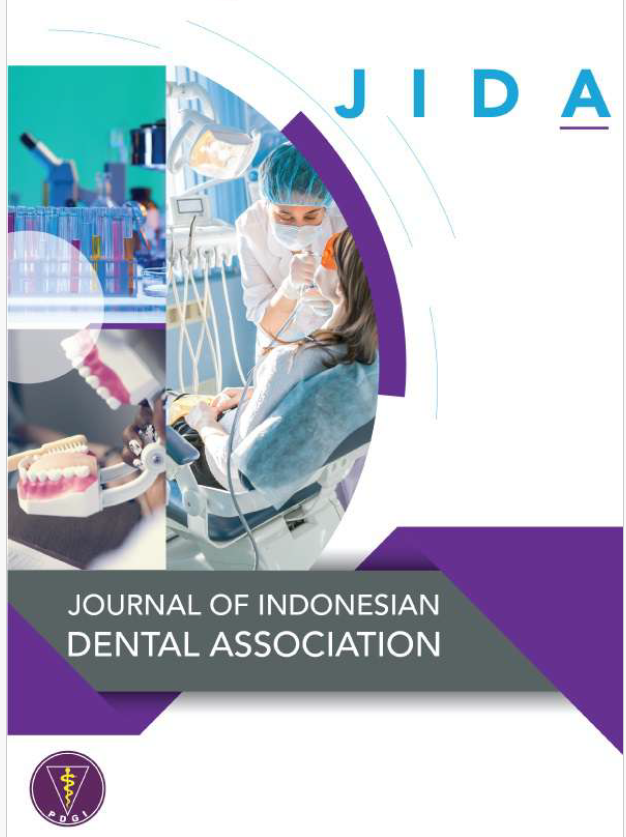
Introduction: Polymethylmethacrylate (PMMA) and thermoplastic nylon are materials used for making denture bases. Denture users use various methods in order to keep clean their denture. Mouthwash can be an option for cleaning dentures because it is easier to find. Objective: The objective of this research was to investigate the effect of mouthwash containing alcohol as a denture cleanser on flexural strength of polymethylmethacrylate and thermoplastic nylon. Methods: Eighteen samples of polymethylmethacrylate and eighteen samples of thermoplastic nylon with a bar shape (65x10x3 mm) are being used in this research. Each materials are randomly divided into 3 groups (n=6) so there will be six research groups incuded : (A1) PMMA immersed aquades, (A2) PMMA immersed in mouthwash containing alcohol 21.6%, (A3) PMMA immersed in mouthwash containing alcohol 9%, (B1) thermoplastic nylon immersed in aquades, (B2) thermoplastic nylon immersed in mouthwash containing alcohol 21.6%, (B3) thermoplastic nylon immersed in mouthwash containing alcohol 9%. Flexural strength of two materials was tested using universal testing machine (Shimadzu AGS - 5KNX, Japan). All of the data obtained were analyzed using two way Anova test. Result: The mean of flexural strength for group A1 (104.275 ± 15.469 MPa), A2 (103.298 ± 10.387 MPa), A3 (111.626 ± 14.957 MPa), B1 (42.707 ± 4.857 MPa), B2 (38.258 ± 3.246 MPa), and B3 (40.218 ± 1.542 MPa). Result of analysis showed that there was a significant differences between flexural strength of polymethylmethacrylate and thermoplastic nylon (p<0,05), but immersion in mouthwash containing alcohol showed no significant difference (p>0,05). Conclusion: This research found that flexural strength of polymethylmethacrylate higher than flexural strength of thermoplastic nylon and mouthwash containing alcohol can be an alternative for cleaning a denture because it does not affect the flexural strength of both material significantly

Oleh :
Octarina